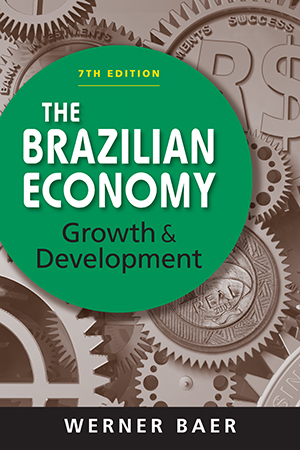
- 2013/469 pages
The Brazilian Economy:
Growth and Development, 7th edition
Paperback: $35.00
ISBN: 978-1-58826-842-6
Ebook: $35.00
ISBN: 978-1-62637-574-1
In this thorough description and analysis of Latin America's largest economy, Werner Baer traces the trajectory of Brazil's economic development and performance from the colonial period through the early years (2011-2012) of the administration of Dilma Rousseff.
In addition to updated information, the seventh edition includes entirely new chapters on the challenges and accomplishments of the Lula/Rousseff period and also on the nature of human capital and the role of the education system in Brazil. With Brazil playing an increasingly major role on the global economic stage, this edition will be valuable both in the classroom and as an authoritative reference resource.
In addition to updated information, the seventh edition includes entirely new chapters on the challenges and accomplishments of the Lula/Rousseff period and also on the nature of human capital and the role of the education system in Brazil. With Brazil playing an increasingly major role on the global economic stage, this edition will be valuable both in the classroom and as an authoritative reference resource.







